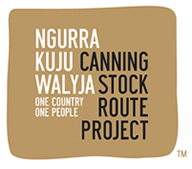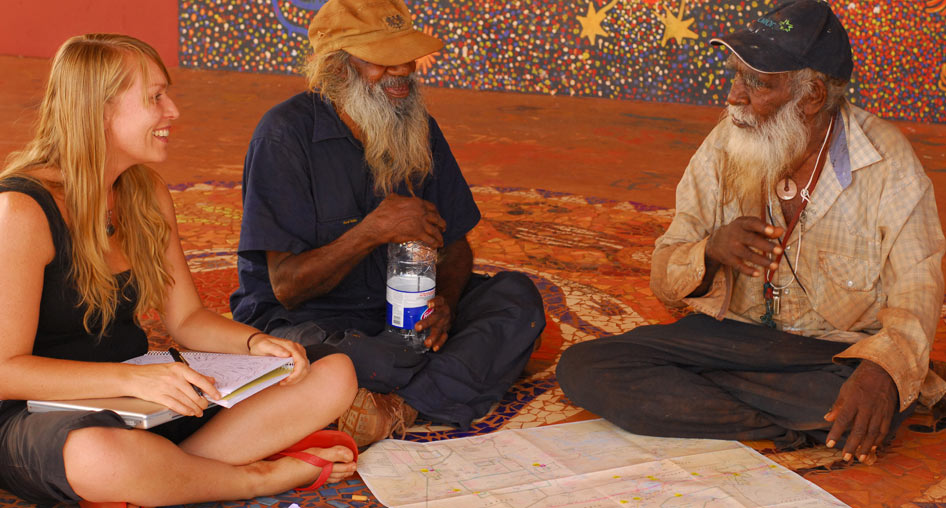Aboriginal Knowledge
The Canning Stock Route Project was built on an intention to present the strength and vitality of contemporary desert life, and the wealth of Aboriginal knowledge that sustains it, to mainstream Australian audiences. Indigenous Cultural and Intellectual Property (ICIP) is at the heart of the project’s content and development, and represents the self-determined right of Indigenous people to protect and control the external use of their ideas, art and culture. Unlike ordinary Intellectual Property (IP) the management of ICIP is not enshrined in Australian law. Because of the immense value of ICIP in Canning Stock Route Project content, a comprehensive approvals process was designed and delivered over three years and 27 visits to communities to ensure that Aboriginal contributors retained full control over their knowledge and its public presentation. Because ICIP also represents collective rather than exclusively individual rights, these approvals workshops involved one-on-one permissions, smaller meetings with custodians of specific sites and ceremonies, and large community meetings to approve content for the project’s broader public outcomes.
More than 100 people from 12 language groups and 17 remote communities told stories in their traditional languages for the Canning Stock Route Project. Most of these contributors are senior people, whose breadth of knowledge and generosity has defined the project and its collection. The threads of multiple stories are woven into their oral histories – life-stories merge with stories of culture, creation and law and historical recollections. These stories contain not only each individual’s ideas and expression but also collective cultural knowledge. Whilst certain people are the senior custodians for particular sites, songs and ceremonies, big cultural decisions must nonetheless be collectively endorsed. Such decisions are often negotiated over successive meetings in different communities. The Canning Stock Route Project has taken enormous effort to ensure that Aboriginal contributors retain control over their own cultural and intellectual property.


